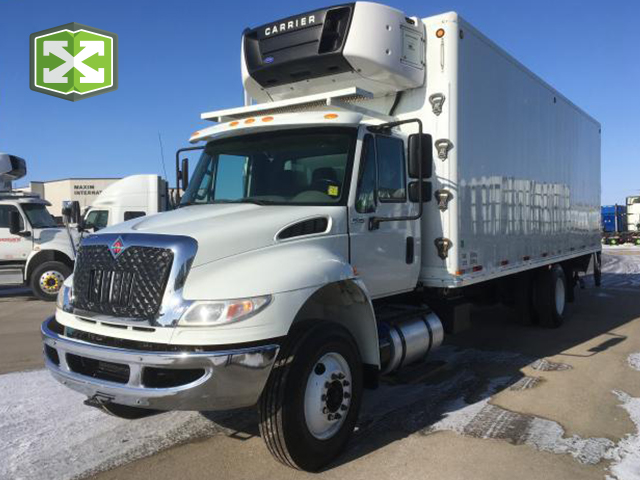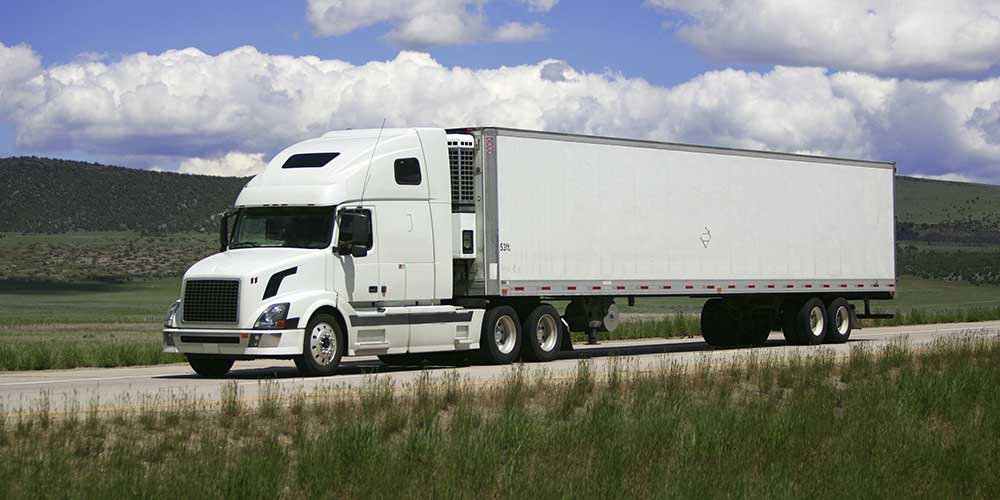Selecting the Right Transport Refrigeration System for Your Fleet
Choosing a proper transportation refrigeration system for your fleet is an essential choice that can substantially influence operational efficiency and item honesty. It requires an extensive understanding of your certain refrigeration demands, consisting of temperature level needs and shipment timetables. Different system kinds offer distinct advantages, yet selecting the right one includes more than just technical requirements; it likewise encompasses factors to consider of spending plan and future development. As we explore these crucial variables, it becomes noticeable that the implications of this choice expand far past operational abilities and initial costs. What might these implications disclose regarding your fleet's long-term success?
Recognizing Your Refrigeration Demands
When selecting a transport refrigeration system, comprehending your details refrigeration requirements is critical to making certain item quality and compliance with industry standards. Various elements have to be taken into consideration to establish one of the most ideal system for your procedure. These consist of the sort of products being transferred, their temperature demands, and the duration of transit.
For disposable goods, such as fresh produce or pharmaceuticals, precise temperature level control is critical. Understanding the temperature range needed for each and every item permits the choice of a system that can maintain those conditions consistently. In addition, take into consideration the regularity of deliveries and the distance took a trip; longer trips may necessitate systems with boosted insulation or back-up power choices to stop temperature level changes.

In addition, the capacity of the refrigeration system must straighten with your load size. Straining an unit can result in inadequate air conditioning, while an extra-large system may be expensive and ineffective. Regulative compliance is necessary; acquaint on your own with global and neighborhood standards controling the transportation of temperature-sensitive items. By extensively analyzing these variables, you can make certain that your picked transportation refrigeration system properly fulfills your functional requirements and preserves product integrity.
Kinds Of Transport Refrigeration Solution
Selecting the best sort of transportation refrigeration system is essential for guaranteeing the risk-free transit of temperature-sensitive goods. There are numerous systems available, each designed to meet details requirements and applications.
The most usual types consist of straight expansion (DX) systems, which use refrigerant to absorb warmth and cool down the cargo location efficiently. These systems are frequently preferred for their effectiveness and reduced preliminary prices. One more option is the central refrigeration system, which offers several areas or automobiles from a single compressor system. This is particularly valuable for larger fleets calling for constant temperature level control across numerous transport systems.
In addition, there are self-contained refrigeration systems that incorporate the compressor and evaporator in one bundle. These devices are perfect for smaller sized cars or when room is limited. For specialized applications, such as transporting perishables or pharmaceuticals, cryogenic refrigeration systems might be made use of, employing liquid nitrogen or carbon dioxide to preserve ultra-low temperature levels.
Last but not least, crossbreed refrigeration systems that combine electric and diesel power are ending up being significantly popular, offering versatility in energy usage and minimizing ecological influence. Understanding these different kinds enables fleet drivers to make anonymous enlightened choices customized to their details functional demands.
Trick Features to Think About
Exactly how can one ensure that a transportation refrigeration system satisfies all operational demands? To accomplish this, a number of crucial features need to be very carefully reviewed. To start with, temperature control is essential; systems must supply exact temperature level setups to suit different products, ranging from frozen goods to disposable items.
Energy performance is another essential factor to consider, as it affects functional prices. Look for systems that make use of innovative innovation, such as variable speed compressors, to maximize power use without jeopardizing efficiency.
An additional feature to assess is the dependability and resilience of the tools. Equipments constructed from high-grade products and made for resilience against extreme conditions will click for more lower maintenance prices and downtime.
In addition, the ease of maintenance and accessibility of parts can significantly affect functional effectiveness (refrigerated transportation thermo king). Functions like modular layouts or remote monitoring capacities can enhance solution processes
Last but not least, compatibility with existing fleet monitoring software can boost monitoring and reporting processes. By concentrating on these vital functions, fleet drivers can ensure that their transport refrigeration systems not just fulfill current needs however likewise adapt to future needs.

Budgeting for Refrigeration Solutions
Examining vital attributes of transportation refrigeration systems is only one part of guaranteeing operational effectiveness; budgeting for refrigeration solutions is similarly essential. A well-structured budget plan not just incorporates the first acquisition rate but likewise thinks about long-term functional prices, including power consumption, maintenance, and prospective repair work demands.
When developing a budget, fleet managers need to first evaluate the total expense of possession (TCO) This includes not only the purchase costs yet also ongoing expenditures associated with sustain effectiveness and the longevity of the refrigeration devices. Picking systems with higher power performance ratings might yield substantial financial savings gradually, minimizing ahead of time prices.
Moreover, fleet operators need to represent possible scalability. As businesses grow, the refrigeration needs may alter, demanding upgrades or additional units. Planning for these future expenses can avoid monetary strain.
Financing alternatives can also play a critical duty in budgeting. Leasing, fundings, or outright purchases each have unique financial effects, and recognizing these can assist in making an educated decision. Inevitably, a detailed budget plan that considers both future and instant requirements makes certain that transport refrigeration systems contribute favorably to the overall functional efficiency of the fleet.
Upkeep and Support Alternatives
In the realm of transport refrigeration systems, efficient maintenance and assistance options are vital for ensuring optimal performance and longevity. Routine upkeep is necessary to avoid breakdowns and maintain the integrity of temperature-sensitive cargo. It is suggested to establish a routine assessment routine with certified service technicians who can do required checks and repairs on refrigeration units.
Assistance alternatives must include Check Out Your URL a durable solution arrangement, covering both regular upkeep and emergency fixings. This guarantees that your fleet has accessibility to prompt help, minimizing downtime and preserving operational performance. Several suppliers provide comprehensive assistance plans that include training for your team, allowing them to perform basic troubleshooting and maintenance tasks.
Moreover, using remote tracking innovation can enhance your upkeep method - reefer trucks thermo king. These systems provide real-time data on temperature level and efficiency, permitting proactive steps prior to problems escalate. Purchasing training and technology not just enhances your fleet's reliability but additionally extends the life-span of your refrigeration systems
Eventually, a calculated strategy to maintenance and support will guard your financial investment and ensure that your transport refrigeration systems run at peak effectiveness, providing constant outcomes for your business.

Conclusion
In final thought, selecting the appropriate transport refrigeration system for a fleet demands a thorough analysis of certain refrigeration needs, system types, and important features. Furthermore, mindful budgeting and preparation for future scalability will contribute to the lasting success of the refrigeration approach.
Selecting a proper transport refrigeration system for your fleet is an important decision that can significantly impact functional performance and product stability.When choosing a transportation refrigeration system, recognizing your details refrigeration demands is paramount to making certain item top quality and conformity with industry standards. By completely evaluating these elements, you can ensure that your picked transport refrigeration system successfully meets your functional requirements and maintains product integrity.
Eventually, a thorough spending plan that takes into consideration both instant and future needs makes certain that transport refrigeration systems add favorably to the general functional performance of the fleet.
In final thought, picking the proper transportation refrigeration system for a fleet requires an extensive evaluation of specific refrigeration demands, system kinds, and crucial features.